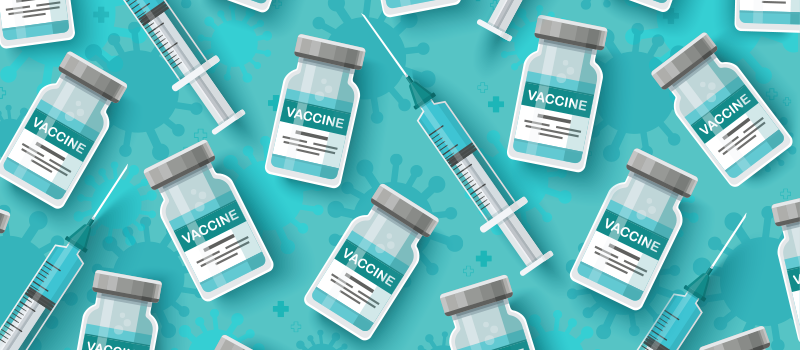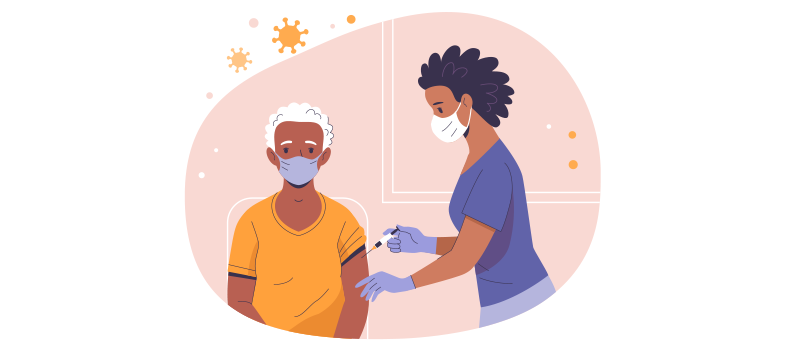What’s the Buzz
The Bee Healthy Blog
What Is Hydroxychloroquine Used For?

The drugs chloroquine and hydroxychloroquine are not new—they have been around since the 1940s, but hydroxychloroquine has recently been in the news as a possible treatment for Covid-19. Continue reading to learn more about this medication, including what it is used for normally and whether it is an effective treatment in patients with Covid-19.
What is hydroxychloroquine used to treat normally?
Hydroxychloroquine is a prescription medication that comes in 200 mg tablet form to be taken by mouth. It is available under the brand name Plaquenil in the United States as well as in generic form.
Chloroquine and hydroxychloroquine were developed as antimalarial drugs. Malaria is a disease caused by a parasite that enters the blood through a mosquito bite. It is endemic in many parts of the world, including Latin America, Asia, and sub-Saharan Africa. Hydroxychloroquine is used for both the prevention and the treatment of malaria. It works by killing the parasite that causes the disease. The medicine should be taken before traveling to parts of the world where malaria is endemic.
Hydroxychloroquine is also used to treat autoimmune conditions such as discoid lupus erythematosus, systemic lupus erythematosus, and rheumatoid arthritis in patients who have not responded to other treatments.
How to take hydroxychloroquine 200 mg for malaria prevention?
Hydroxychloroquine can now only prevent malaria in a few parts of the world, such as parts of the Caribbean and Central America. It can be safely taken by adults, children, pregnant women, and nursing mothers. Hydroxychloroquine is a good choice for malaria prevention during longer trips because you don’t need a daily dose (you only need to take it once a week).
Children and adults should take one dose of hydroxychloroquine 1 to 2 weeks before traveling to an area where malaria transmission occurs. They should continue taking one dose per week while they remain abroad and for four weeks after returning home to the United States. The weekly dose for adults is 400 mg daily (two 200 mg tablets).
The CDC recommends buying hydroxychloroquine in the United States before traveling to your destination. Medications purchased abroad may be of poor quality, counterfeit, or contaminated and may not protect adequately against malaria.
How to take hydroxychloroquine to treat malaria?
Hydroxychloroquine is a prescription drug and should only be taken under the supervision of a healthcare professional. To treat malaria, the first dose is usually taken immediately, followed by another dose 6-8 hours later and additional doses during the next 2 days. To treat malaria in infants and children, the doctor will recommend a hydroxychloroquine dosage based on the child’s body weight (6.5 mg/kg).
Hydroxychloroquine should be stored in its container at room temperature, away from excessive heat and moisture. Make sure the container is tightly closed and out of sight and reach of children. These precautions are necessary to prevent accidental poisoning or overdose.
Is hydroxychloroquine an anti-inflammatory? How does it treat rheumatoid arthritis and systemic lupus erythematosus?
Hydroxychloroquine is a disease-modifying drug that reduces the activity of the immune system. It has anti-inflammatory properties and can relieve inflammation, swelling, stiffness, and joint pain. This makes hydroxychloroquine an effective treatment for autoimmune diseases such as rheumatoid arthritis (an inflammatory condition of the joints), discoid lupus erythematosus (an inflammatory condition of the skin), and systemic lupus erythematosus (an inflammatory condition that affects the whole body).
To treat these conditions, hydroxychloroquine is taken 1-2 pills (200 mg to 400 mg dosage) twice a day. Doctors recommend taking the medicine at the same time every day, preferably with food or milk. It can take up to 2 months for hydroxychloroquine to begin working for conditions such as rheumatoid arthritis.
Can hydroxychloroquine be used to treat Covid?
When the Covid-19 pandemic emerged, doctors tried to repurpose available drugs to see if they would benefit affected patients. The Food and Drug Administration issued an EUA (emergency use authorization) to allow the use of hydroxychloroquine in certain hospitalized patients with Covid-19. However, the EUA was later revoked based on large, randomized clinical trials that showed hydroxychloroquine has no benefit in speeding recovery or decreasing the likelihood of death in a Covid-19 patient. Data also showed that hydroxychloroquine is unlikely to kill the virus that causes Covid-19.
Therefore, hydroxychloroquine should not be used to prevent or treat Covid-19. Taking hydroxychloroquine can result in QT prolongation, a serious heart rhythm abnormality, or ventricular tachycardia, a dangerously rapid heart rate, in patients with Covid-19. These risks are higher when hydroxychloroquine is taken with other medicines like azithromycin that are known to cause QT prolongation and heart rhythm changes. People with other health conditions such as kidney disease or heart disease are at increased risk of these heart complications.
What does hydroxychloroquine do to your body?
Always consult a healthcare professional before starting Plaquenil (hydroxychloroquine). Most people tolerate hydroxychloroquine well. The drug works by killing the parasite that causes malaria. It also decreases the activity of the immune system and can benefit patients with diseases such as rheumatoid arthritis.
Before starting hydroxychloroquine treatment, be sure to tell your doctor about any other medications you take, including prescription medications, over-the-counter medicines, nutritional supplements, and herbal products. Also, tell your doctor if you consume large amounts of alcohol.
Hydroxychloroquine can have drug interactions with many medications such as acetaminophen (Tylenol), azithromycin (Zithromax), insulin and oral diabetes medications, cimetidine (Tagamet), digoxin (Lanoxin), certain anti-seizure medications, amiodarone (Pacerone), and others. If you take any of these medicines, your doctor may need to change their dose and/or monitor you for side effects.
When taken for the long term at high doses, hydroxychloroquine may increase the risk of retinopathy, a rare type of eye disease. If you are living in a malaria-endemic country and need to take hydroxychloroquine for more than 5 years, you should get regular eye exams.
What are the bad side effects of hydroxychloroquine?
Hydroxychloroquine may cause side effects such as dizziness, headache, loss of appetite, nausea, vomiting, diarrhea, stomach ache, and rash. Talk to your doctor if these adverse effects are severe or do not go away.
More serious side effects of hydroxychloroquine include vision problems such as blurred vision, changes in vision, seeing streaks or flashes of light, sensitivity to light; hearing difficulties, ringing in the ears; muscle weakness; bleeding, bruising; hair loss or bleaching of the hair; irregular heartbeat; mood changes; and convulsions. If you experience any of these serious side effects, contact your doctor for medical advice immediately.
References:
1. https://medlineplus.gov/druginfo/meds/a601240.html
2. https://www.cdc.gov/malaria/resources/pdf/fsp/drugs/hydroxychloroquine.pdf
3. https://www.ccjm.org/content/85/6/459
4. https://www.hopkinsarthritis.org/patient-corner/drug-information/hydroxychloroquine-plaquenil/











SOCIAL